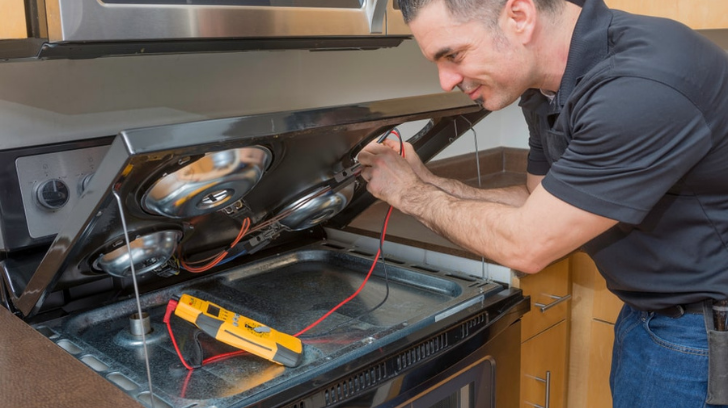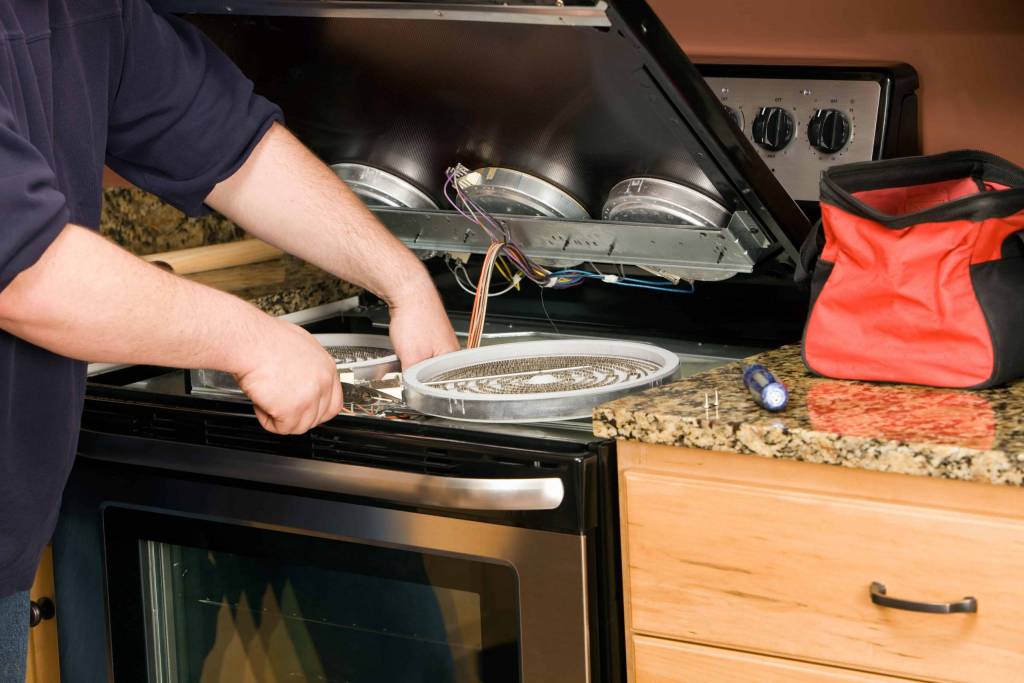10 Easy Ways to Make Your Appliances More Energy-Efficient

Keeping your household appliances energy efficient is an excellent way to reduce energy costs, minimize your environmental impact, and extend the lifespan of these major devices. From washing machines and dishwashers to refrigerators and stoves, each appliance has its own features and settings you can optimize for lower consumption. In this comprehensive guide, we’ll walk you through 10 easy ways to make your appliances more energy-efficient—such as Choosing ENERGY STAR® Certified Appliances, maintaining them correctly, and using off-peak hours for laundry or cooking. Let’s explore practical tips that fit any lifestyle or budget.

Choosing ENERGY STAR® Certified Appliances
One of the most effective ways to cut energy usage is to invest in energy-efficient appliances. ENERGY STAR® certification ensures that a product meets or exceeds federal standards for energy conservation.
Looking for the Label
Before buying a new washer, fridge, or dryer, check for the ENERGY STAR® label. Whether you’re shopping for Whirlpool, Bosch, or Samsung models, selecting a certified product ensures energy savings over time. While the initial costs may be slightly higher compared to a standard model, the long-term benefits include lower monthly energy bills and reduced carbon footprint.
Benefits for All Appliance Types
Many major appliances come in ENERGY STAR®-certified versions, including dishwashers and gas stoves. These updated models often include smart features to further reduce consumption, letting you run more water efficient cycles or automatically adjust heating. Whether you need a wide range of cooking options or a robust ice maker for your fridge, energy-efficient appliances help maintain optimal performance with minimal environmental impact.
Performing Regular Maintenance
Regular maintenance of your machines is crucial for ensuring efficient operation and prolonging their life.
Spotting Issues Early
From washing machine leak detection to analyzing the performance of your refrigerator, early diagnosis prevents major repairs or complete appliance ruin. For instance, a dirty condenser coil in your fridge can force the compressor to overwork, increasing heat and electricity consumption.
Scheduling Check-Ups
Consider having appliance repair experts perform routine inspections every year or so. Toronto Refrigeration offers professional appliance repair services that spot potential problems before they escalate. A timely fix can save you from higher repair costs down the line.
Cleaning Dryer Vents and Refrigerator Coils
Clogged vents or coils are common culprits for inefficiency. A simple cleaning can make a huge difference in your energy usage.
Keeping Dryer Vents Clear
A buildup of lint not only poses a fire hazard but also impacts how fast your clothes dry. Clothes dryers with blocked vents require extra time and heat, driving up your energy bill. Clean the lint filter after every load and schedule a deeper vent cleaning occasionally.
Maintaining Refrigerator Coils
For refrigerators, dirty coils impede airflow. Use a coil brush or vacuum every six months to remove debris. Proper coil care ensures your fridge maintains the cold water or chilled compartments more efficiently, preventing undue strain on the compressor.
Utilizing Smart Appliances for Monitoring
Smart appliances deliver real-time data on usage, temperature, and other crucial metrics, helping you optimize them for maximum energy efficiency.
Taking Advantage of Monitoring Systems
Whether you own a smart washing machine with load sensors or a connected fridge that monitors water usage, these systems offer insights to fine-tune your operation. For instance, a connected dishwasher may automatically select the most water efficient cycle based on the type of load.
Remote Control and Notifications
Smart washers and dryers can send alerts if a door is left open or an error arises, preventing wasted energy. Some even detect minor problems, enabling you to schedule an appointment with an appliance repair technician or fix the issue yourself.
Running Appliances During Off-Peak Hours
Utility providers often charge different rates at various times of day, especially in regions like British Columbia or major cities across Ontario.
Leveraging Off-Peak Savings
By doing laundry or using your dishwasher during off-peak hours—often late evenings or weekends—you can lower monthly energy costs. Consult your local utility’s schedule for precise times to run stoves or washers at discounted rates.
Automated Scheduling
Modern washers, ovens, and dishwashers often include delay-start features. Programming them to run at off-peak times can provide real cost benefits without disturbing your daily routine.
Understanding Energy Ratings and Certifications
Energy ratings, like ENERGY STAR®, and other certifications can help you choose the most energy-efficient appliance for your home.
Familiarizing Yourself with Labels
Besides ENERGY STAR®, you may see EnergyGuide labels indicating estimated annual operating costs. For washers, look for the Water Factor rating which indicates how many gallons of water each cycle consumes per cubic foot of laundry. Lower numbers imply higher water savings.
Interpreting the Data for Better Choices
Knowing how to read these labels helps you compare different models. If you see a large difference in annual cost or water usage, it can be a strong reason to choose one brand or model over another.
Unplugging Unused Appliances
Even when household appliances are turned off, they can still draw electricity if plugged in, known as standby power.
Minimizing Phantom Loads
Unplug appliances or use a power strip to turn them off collectively, especially if you don’t plan to use them for an extended time. This step is particularly relevant for secondary freezers in the garage or less frequently used microwaves.
Extending Appliance Lifespan
Reducing standby operation can also reduce wear on internal electrical components, leading to fewer broken appliance scenarios. This small effort can add up to big energy savings monthly.
Using Proper Settings on Appliances
Settings like cold water on washers or eco-mode on dishwashers can make a massive difference in everyday energy usage.
Washer Settings
Running washers on cold water cycles significantly reduces energy costs, as water heating accounts for a big chunk of consumption. For heavily soiled clothes, a warm pre-wash followed by a cold rinse might suffice.
Dishwasher Eco-Mode
Dishwashers labeled with eco cycles adjust water temperature and reduce heat for drying. By using a heated dry setting only when necessary, you can cut back on energy spent.
Investing in Energy-Efficient Upgrades
Upgrading older appliances to modern, energy-efficient equivalents can drastically lower your consumption over the years.
Replacing Outdated Models
If you own a decades-old washer or fridge, new energy-efficient models can quickly pay for themselves in energy savings. Some advanced front-loading washers or high-efficiency dryers can also reduce water usage, beneficial for both your wallet and the environment.
High-Efficiency Components
Innovations like Heat Pump Clothes Dryers and advanced inverter compressors in refrigerators reduce energy usage further while improving performance. Though initial costs may be higher, the long-term savings often justify the expense.
Requesting Rebates and Participating in Warranty Programs
Consumers can recoup some upgrade expenses by taking advantage of local rebates or manufacturer incentive programs.
Utility Company Rebates
Many utility providers encourage consumers to purchase energy-saving appliances by offering credits or rebates. Check local resources in areas like North York or Stoney Creek for potential deals.
Extended Warranty Coverage
When buying new appliances, consider warranty programs that cover parts and labor. A comprehensive warranty ensures you’re protected from big repair bills, and you get peace of mind if something goes wrong with your new purchase.

Why Choose Toronto Refrigeration for Appliance Repairs
Toronto Refrigeration has a team of expert technicians dedicated to professional appliance repair services for washers, refrigerators, dishwashers, and more. Our skilled appliance technicians handle common issues across multiple brands, ensuring reliable service at affordable or competitive rates. By addressing problems promptly—like dirty dryer vents or freezer coil blockages—you can keep your appliances running efficiently. With years of experience and an unwavering commitment to customer satisfaction, we are the go-to for everything from emergency fixes to routine maintenance that preserves energy efficiency in your home. Our technicians are skilled to fix all types of appliance issues.
Conclusion
From choosing ENERGY STAR® certified appliances to scheduling off-peak usage and regularly cleaning dryer vents, many effective strategies exist to make your household appliances more energy efficient. While simple measures like cold water or adjusting spin cycles reduce energy consumption, bigger steps—such as upgrading to modern, energy-efficient models—yield even greater savings. By following these tips and staying on top of maintenance, you’ll benefit from lower bills, fewer repairs, and an overall greener lifestyle. If you need expert help, Toronto Refrigeration stands ready with professional and reliable service.